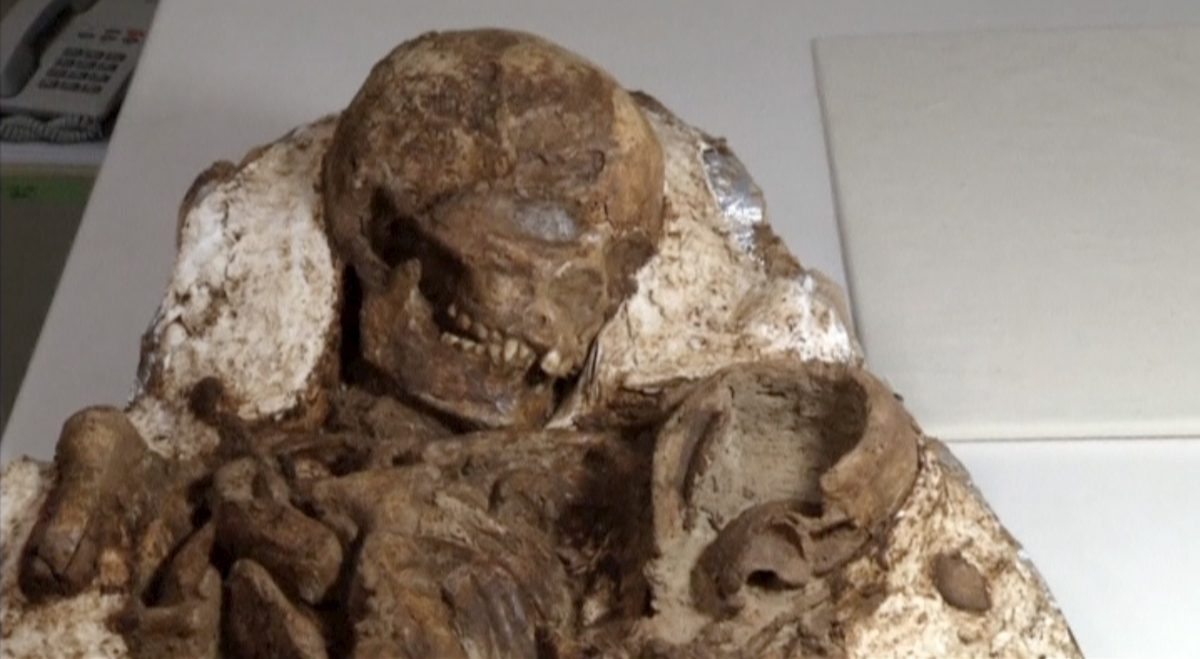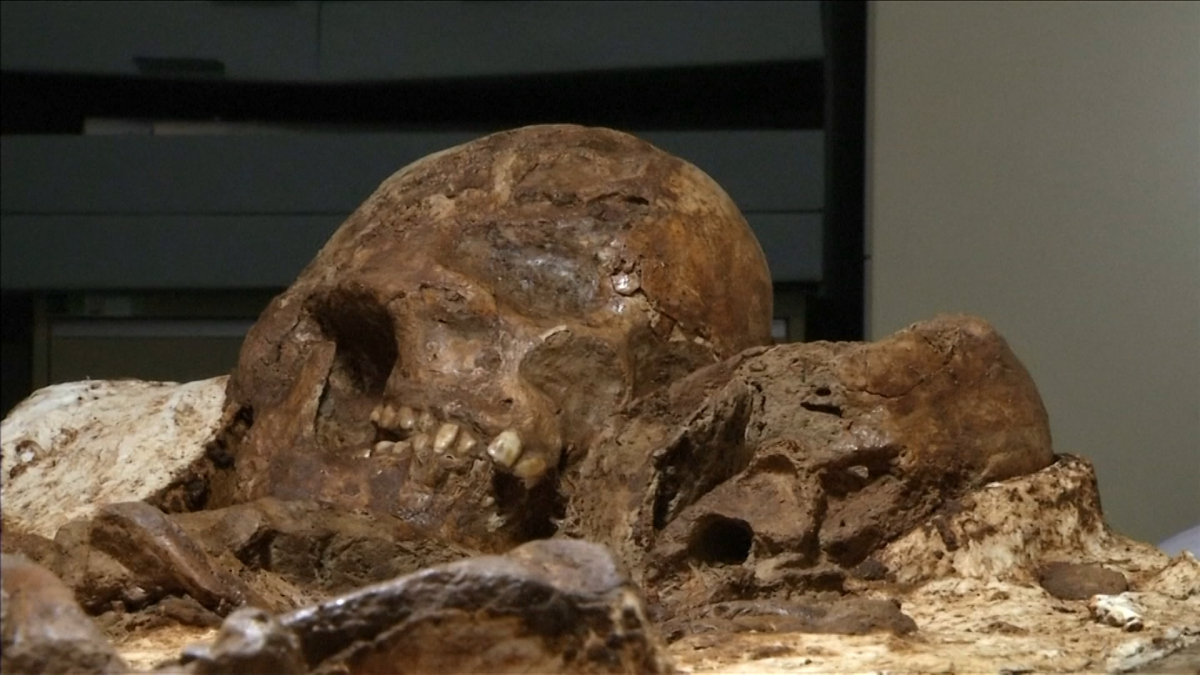Taiwan: 4,800-year-old fossil of mother holding her infant discovered
A 4,800-year-old fossilised mother and baby has been discovered in Taiwan. The remains were excavated from graves in the Taichung region and are now being analysed by scientists at the country's National Museum of Natural Science.
Chu Whei-lee, a curator in the Anthropology Department of the museum, told Reuters: "When it was unearthed, all of the archaeologists and staff members were shocked. Why? Because the mother was looking down at the baby in her hands."
The site excavation began in 2014 and, over the course of a year, archaeologists uncovered 48 sets of remains. Along with the mother and child, researchers also found five children. They have since used carbon dating to establish the fossils date back 4,800 years.
Researchers believe the remains found in the mass grave represent some of the earliest evidence human activity in central Taiwan. They date to the Neolithic period. Other evidence of humans in Taiwan from around this period have been found in more coastal areas. This includes the Dapenkeng culture, which emerged between 3,000 and 4,000 years ago in northern Taiwan.




© Copyright IBTimes 2025. All rights reserved.





















